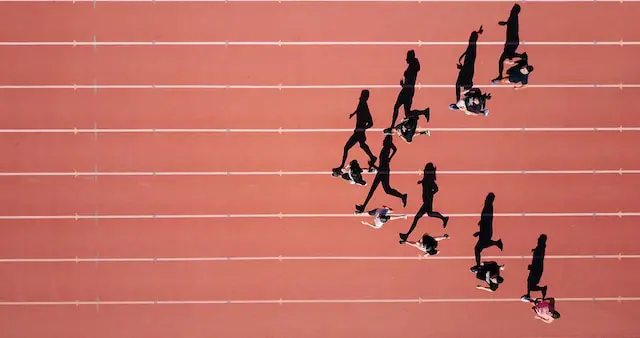In the fast-paced world of sports, athletes often find themselves in a constant cycle of training, competing, and recovering. Although emphasizing rigorous training is essential to success in sports, the importance of rest should not be underestimated. In this article, we explore why and how athletes should prioritize rest to improve their overall performance.
The Importance Of Rest For Athletic Performance
Driven by a passion for excellence, athletes often push their bodies to the limits in pursuit of success. But what many people don’t realize is that the real magic happens during rest. Rest is more than just a break from activity. This is a fundamental part of the training process. Therefore, athletes must consider rest as the key to reaching their full potential:
Muscle Repair And Growth:
Intense training sessions cause microscopic damage to muscle fibers. At rest, the body begins repair processes that lead to muscle growth and increased strength. Without adequate rest, your muscles won’t have enough time to recover, which can lead to fatigue, decreased performance, and increased risk of injury.
Preventing Overtraining:
Overtraining is a common danger for aspiring athletes. Continued high-intensity training without adequate rest can lead to physical and mental fatigue, decreased immune function, and increased susceptibility to injury. Strategic rest periods prevent overtraining and allow the athlete to maintain a sustainable and progressive training routine.
Mental Recovery:
Rest is important not only for the body but also for the mind. Athletes are often under tremendous pressure, both from external expectations and their own ambitions. Adequate rest ensures mental recovery, reduces stress, increases concentration, and improves cognitive function. When your mind is at rest, you’ll be better able to cope with competition and training challenges.

How Athletes Can Incorporate Effective Rest
Understanding the importance of rest is only the first step. Incorporating strategic rest periods into your training program requires a thoughtful approach. Here are some practical strategies for athletes to optimize their rest and recovery.
Quality Sleep:
Sleep is the most natural and effective way to recover. Athletes should strive to get 7 to 9 hours of quality sleep each night. Your body releases growth hormone, which supports muscle repair and increases your overall well-being.
Active Rest:
Rest does not necessarily mean complete inactivity. On rest days, doing low-intensity activities like swimming, cycling, and yoga can increase blood flow, reduce muscle stiffness, and aid overall recovery.
Nutrition:
Proper nutrition is an important part of the recovery process. Athletes should focus on a balanced diet that combines macro and micronutrients to support muscle repair and replenish energy stores. You can also check out CBDistillery to view their products.
Hydration:
Dehydration can hinder recovery and affect performance. Athletes should make sure to drink enough fluids, especially after intense training sessions.
Periodization:
Incorporate strategic periods of reduced training intensity or volume into your overall training plan. This allows your body to recover without sacrificing long-term progress.
In Conclusion
When aiming to improve athletic performance, the importance of rest should never be ignored. This is not a sign of weakness, but rather a strategic investment in long-term performance.
Athletes who prioritize rest are better able to cope with the physical and mental demands of their sport, resulting in increased strength, endurance, and recovery. Harness the power of rest and watch your performance reach new heights.

